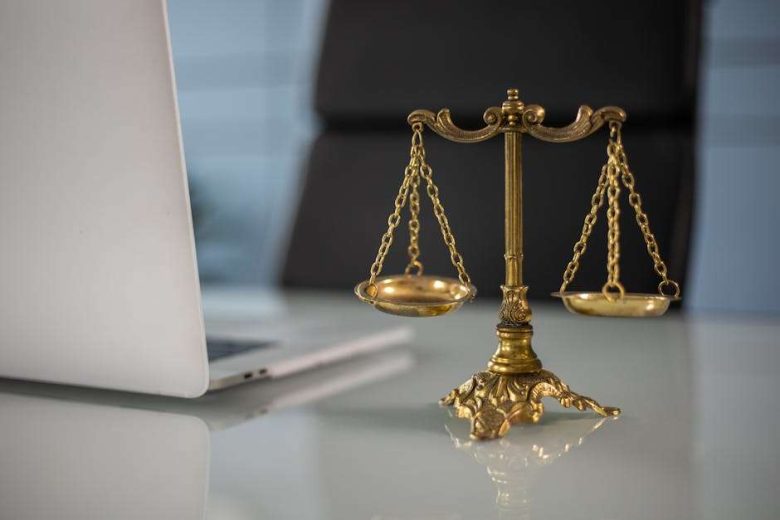Technology law governs the legal issues that arise from the use and development of technology in modern society. It spans across multiple disciplines and industries, ensuring that technological advancements align with national and global legal standards. From intellectual property rights to data protection and artificial intelligence (AI) policies, technology law plays a pivotal role in guiding how technology integrates into our daily lives. This article explores the most critical areas and regulations under the realm of technology law, shedding light on its significance and complexities.
Intellectual Property in the Digital Age
Intellectual property (IP) is one of the most heavily impacted areas by technological advancements. Digital platforms and innovations make creating, sharing, and duplicating content easier than ever before, but they’ve also made IP protection more challenging. Technology law ensures creators’ rights to inventions, patents, trademarks, and copyrights are respected and enforced. At the same time, it navigates complicated issues such as software licensing, digital rights management, and the unauthorised distribution of digital media. Laws like the Digital Millennium Copyright Act (DMCA) and international treaties such as the Berne Convention aim to protect IP owners while fostering innovation.
Data Protection and Privacy Laws
With the rise of digital communication, big data, and cloud computing, safeguarding personal data has become a critical legal challenge. Data protection and privacy laws establish frameworks to ensure that individuals’ personal and sensitive data are handled responsibly. Regulations like the General Data Protection Regulation (GDPR) in Europe and the California Consumer Privacy Act (CCPA) in the United States empower individuals with more control over their data. Organisations must comply with these laws by implementing robust security systems, getting user consent for data collection, and providing transparency about data usage.
Cybersecurity and Cybercrime Regulations
The increasing reliance on digital infrastructure has amplified the risk of cyber threats, including hacking, phishing, and ransomware attacks. Cybersecurity laws aim to secure digital systems and protect sensitive information from malicious actors. Regulations such as the Cybersecurity Information Sharing Act (CISA) encourage collaboration between private organisations and government entities to address cyber threats collectively. Technology law also encompasses criminal provisions for prosecuting cybercrimes, setting clear boundaries and legal penalties for activities like identity theft and unauthorised system access.
E-commerce and Online Contracts
The growth of e-commerce has introduced unique legal questions related to online transactions, digital signatures, and electronic contracts. Technology law ensures fair trade practices in the digital marketplace and resolves disputes between buyers and sellers. Regulations, such as the Uniform Electronic Transactions Act (UETA) and the Electronic Signatures in Global and National Commerce Act (E-SIGN Act), validate electronic records and signatures, making contracts enforceable in court. Technology law also covers consumer protection, product warranties, and the prevention of fraud in e-commerce transactions.
Social Media and Content Regulation
Social media platforms have become vital spaces for communication, expression, and commerce. However, they also raise significant legal concerns regarding user-generated content, misinformation, and harmful speech. Technology law addresses these issues by defining the responsibilities and liabilities of social media companies for the content they host. Section 230 of the Communications Decency Act in the U.S. has sparked persistent debates about the balance between protecting platforms from lawsuits and holding them accountable for harmful or misleading content.
The Intersection of AI and Law
Artificial intelligence (AI) is revolutionising industries but introduces a range of legal and ethical questions. Who is responsible when an AI system causes harm? How do we ensure fairness and transparency in AI decision-making? Technology law is at the forefront, proposing regulations to guide AI development and implementation responsibly. Frameworks like the EU’s Artificial Intelligence Act strive to categorise AI risks and establish accountability. Technology law also helps address algorithmic biases, intellectual property ownership for AI-generated works, and the ethical use of machine learning models.
Emerging Technologies and Legal Challenges
Innovations such as blockchain, the Internet of Things (IoT), cryptocurrencies, and autonomous vehicles are redefining traditional industries and presenting new challenges for lawmakers. Blockchain raises questions about digital ledger security and smart contract enforceability. IoT devices test the boundaries of data privacy and security. Cryptocurrencies force financial institutions and regulators to adapt to decentralised systems, while autonomous vehicles necessitate comprehensive liability frameworks. Navigating these challenges requires technology law to remain adaptable and forward-thinking, balancing innovation with societal impact.
Global Perspectives on Technology Law
Technology law is not bound by national borders—cross-border transactions, jurisdictional conflicts, and global data flows demand international coordination. Organisations such as the United Nations and the World Intellectual Property Organisation (WIPO) work to harmonise technology regulations across countries, setting baseline standards for intellectual property, cybersecurity, and digital trade. Differences in legislation, such as Europe’s stringent GDPR versus varying U.S. state privacy laws, highlight the complexity of global cooperation in this field. Understanding these diverse perspectives helps businesses and policymakers grapple with technology’s interconnected challenges.
FAQs
1. What is technology law, and why does it matter?
Technology law addresses legal issues arising from technological advancements, ensuring innovation complies with ethical and societal standards. It matters because technology impacts every aspect of modern life, from personal data usage to AI ethics.
2. What industries fall under technology law?
Technology law spans across industries, including software development, e-commerce, telecommunications, healthcare, and financial services.
3. Who enforces technology law?
Regulatory bodies, such as the Federal Trade Commission (FTC) in the U.S. and the European Commission, enforce technology-focused laws and guidelines in their jurisdictions.
4. What are emerging challenges in technology law?
Key challenges include regulating AI, ensuring blockchain security, harmonising global data protection laws, and addressing ethical concerns in automation and machine learning systems.




